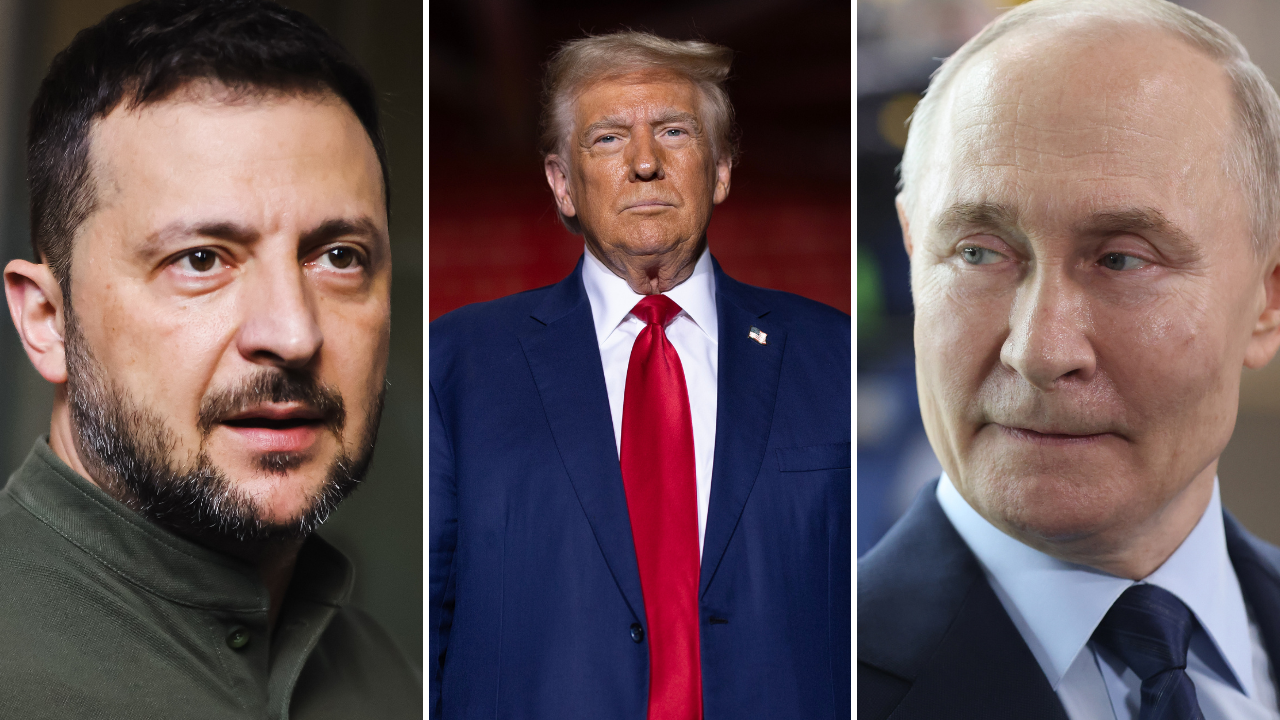Trump on Ukraine: A Separate Peace Plan? Navigating a Complex Proposal
Donald Trump's proposed approach to the Ukraine conflict has sparked significant debate, diverging sharply from the prevailing Western strategy. While details remain scarce and the plan itself is evolving, understanding its potential implications requires careful analysis of its core tenets, its feasibility, and its potential consequences.
The Core Tenets of Trump's Proposed Plan
While specifics haven't been fully articulated, Trump's suggested path to peace in Ukraine generally centers around the following:
-
Territorial Concessions: This involves Ukraine potentially ceding some territory currently occupied by Russia, a point that immediately clashes with Ukrainian President Zelenskyy's steadfast refusal to negotiate away any land. This element represents a significant departure from the West's unwavering support for Ukraine's territorial integrity.
-
Negotiated Settlement: Trump advocates for direct negotiations between Ukraine and Russia, potentially brokered by a neutral party. This stands in contrast to the current emphasis on providing military aid to Ukraine to enable a counteroffensive and eventual liberation of occupied territories.
-
End to Military Aid: A key aspect appears to be a curtailment, if not a complete cessation, of Western military assistance to Ukraine. This is arguably the most contentious aspect, as it directly contradicts the current strategy of bolstering Ukraine's military capabilities to defend itself against Russian aggression.
-
Focus on Core Interests: The implied reasoning appears to prioritize ending the conflict and potentially preventing further escalation, even at the cost of territorial compromises. This pragmatism, while understandable from a certain perspective, clashes with the broader Western commitment to upholding international law and deterring Russian aggression.
Feasibility and Challenges
The feasibility of Trump's proposed plan faces immense obstacles:
-
Ukrainian Resistance: The plan's reliance on Ukrainian territorial concessions faces significant resistance from within Ukraine itself. President Zelenskyy has repeatedly emphasized the importance of reclaiming all occupied territories and has shown little willingness to negotiate under duress. Public opinion within Ukraine overwhelmingly supports continued resistance and the rejection of territorial concessions.
-
Russian Intentions: The success of any negotiated settlement hinges on Russia's willingness to engage in good faith negotiations and adhere to any agreement reached. Given Russia's history of violating international agreements and its stated ambitions in Ukraine, this is a significant challenge. There's little indication that Russia would accept a settlement that falls short of achieving its maximalist goals.
-
Western Unity: Trump's proposal directly challenges the current consensus among Western allies. The substantial military and financial aid provided to Ukraine reflects a shared commitment to defending against Russian aggression and upholding international norms. A significant shift in this policy would require a substantial realignment of Western foreign policy, which seems improbable at this juncture.
-
Moral and Ethical Considerations: The implication of territorial concessions raises significant moral and ethical questions. Ceding land to an aggressor that achieved its goals through violence sets a dangerous precedent and could embolden other authoritarian regimes.
Potential Consequences
The potential outcomes of implementing such a plan are highly uncertain and range from a relatively swift but potentially unstable peace to an escalation of the conflict.
Potential Positive Outcomes (highly unlikely without significant changes to circumstances):
- A rapid cessation of hostilities, minimizing further loss of life.
Potential Negative Outcomes (highly probable without significant changes to circumstances):
- Emboldening of Russia and potential for further aggression against other nations.
- Undermining of international law and the principles of territorial integrity.
- Destabilization of the region and a potential resurgence of conflict in the future.
- Loss of confidence in Western commitments to its allies.
Conclusion: A Complex and Contentious Proposition
Trump's proposed peace plan for Ukraine is a complex and deeply controversial proposition. While presented as a pragmatic approach to ending the conflict, its feasibility and potential consequences are far from clear. The plan's inherent challenges, coupled with the geopolitical implications, necessitate a thorough and nuanced examination before any consideration of its implementation. Ultimately, the path to peace in Ukraine will likely require a far more intricate and multifaceted strategy than a simple territorial compromise.
